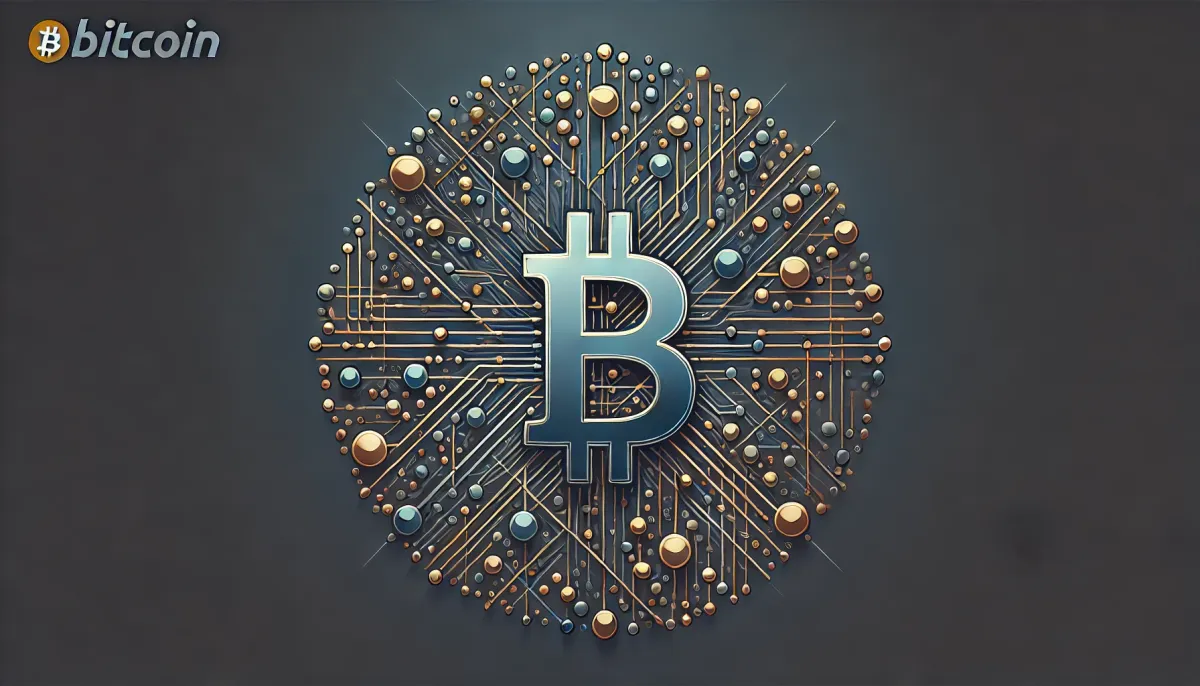The Bitcoin Mining Counter-Revolution: Bitaxe’s Role in Decentralizing Bitcoin Mining
The October 15, 2024 episode of The Mining Pod features Skot, the lead developer behind Bitaxe, a fully open-source ASIC Bitcoin miner. He discusses Bitaxe's unique position as the first open-source Bitcoin miner, which is aimed at the home mining market.

Briefing Notes
My 'briefing notes' summarize the content of podcast episodes; they do not reflect my own views. If you have comments about this briefing note, please leave a comment below (requires signing up for a free blog subscription). Note that some of the podcast episodes I summarize may be sponsored: don't trust, verify, if the information you are looking for is to be used for decision-making.
Summary
The October 15, 2024 episode of The Mining Pod features Skot, the creator of Bitaxe, an open-source ASIC Bitcoin miner. The conversation highlights Bitaxe’s contribution to decentralizing Bitcoin mining by providing low-cost, energy-efficient hardware for hobbyists and home miners. While Bitaxe is not designed for profitability, its open-source nature offers a potential shift in the mining industry, empowering individuals to contribute to the Bitcoin network without relying on proprietary technology or large-scale mining operations.
Take-Home Messages
- Bitaxe introduces the first open-source ASIC miner, promoting decentralization and accessibility for Bitcoin mining enthusiasts.
- Home mining with Bitaxe offers an entry into Bitcoin’s mining network, despite the lack of profitability, by using just 15 watts of power and costing only $150.
- Sourcing parts from repurposed Antminers poses both challenges and opportunities for sustainable open-source hardware projects.
- Decentralized mining solutions like Bitaxe are critical in preserving Bitcoin's decentralized infrastructure, especially in the face of increased corporate mining dominance.
- The future of Bitcoin mining may see a greater role for small-scale, decentralized operations, as long-term profitability for large-scale mining remains uncertain.
Overview
In this October 15, 2024 episode of The Mining Pod, Will Foxley and Colin Harper interview Skot, the lead developer of Bitaxe, a fully open-source ASIC Bitcoin miner. Bitaxe stands out as the first miner designed to be open-source, promoting decentralization and accessibility within the mining community. Skot explains that while the miner operates at a very low power consumption of 15 watts, it is not profitable and is primarily aimed at hobbyists and Bitcoin enthusiasts interested in lottery mining rather than consistent payouts.
Skot elaborates on the technical challenges involved in developing Bitaxe, including sourcing parts from Bitmain’s Antminers and retrofitting them with open-source firmware and hardware. He emphasizes the importance of keeping Bitcoin’s infrastructure open-source to align with Bitcoin’s decentralized ethos. The podcast also highlights the growing concern over the centralization of Bitcoin mining, where large corporations dominate the industry. Projects like Bitaxe offer a potential solution by allowing individuals to mine Bitcoin on a small scale, thereby promoting decentralization.
The conversation also touches on the future of home mining, with Skot acknowledging that while Bitaxe won’t replace industrial-scale miners, its influence could grow as more people adopt decentralized mining solutions. The hosts and Skot agree that decentralized, open-source mining could provide a critical counterbalance to the corporate dominance of Bitcoin mining, making the network more resilient and harder to regulate or control.
The episode concludes with a discussion on the long-term sustainability of home mining, where Skot envisions a future where small-scale miners play an essential role in supporting Bitcoin’s decentralized infrastructure. While profitability remains a challenge, the low cost and energy efficiency of Bitaxe make it a compelling option for those interested in contributing to the Bitcoin network in a non-corporate, decentralized way.
Stakeholder Perspectives
- Hobbyist Miners: Bitaxe provides a low-cost and energy-efficient way to participate in Bitcoin mining without the need for large-scale equipment.
- Large Bitcoin Miners: Industrial-scale mining firms are unlikely to be directly threatened by Bitaxe in terms of hash rate but may be concerned about its potential influence on decentralizing mining.
- Policymakers: The decentralized and open-source nature of projects like Bitaxe could present challenges for regulatory oversight and enforcement, as more individuals can operate independently.
- Bitcoin Developers: Open-source mining aligns with Bitcoin’s foundational principles, potentially attracting more collaboration between hardware developers and the broader Bitcoin development community.
Implications
The rise of open-source mining hardware like Bitaxe could significantly impact Bitcoin’s mining ecosystem, promoting decentralization and reducing reliance on large-scale industrial miners. By allowing individuals to participate in the mining process without proprietary restrictions, Bitaxe contributes to the resilience and long-term security of the Bitcoin network. However, the sustainability of these projects may depend on continued community support and technological advancements.
Policymakers and regulators may face new challenges as decentralized mining becomes more widespread. Without centralized control, enforcing energy regulations or tax compliance on individual miners will become more difficult. On the other hand, decentralized miners using low-power devices like Bitaxe could align with broader sustainability goals, helping to reduce Bitcoin’s overall environmental impact.
Future Outlook
Looking ahead, the role of open-source projects like Bitaxe in Bitcoin mining will likely grow as more individuals seek decentralized alternatives to large-scale mining operations. While Bitaxe is not a direct competitor to major industrial miners, it represents a shift towards a more inclusive and resilient Bitcoin network. The long-term future of home mining will depend on how Bitcoin’s block rewards and transaction fees evolve, but the increasing interest in decentralized solutions suggests that small-scale miners will continue to play a crucial role.
As the mining landscape continues to evolve, it is likely that we will see more open-source projects that challenge the traditional mining model. These innovations may offer new ways for individuals to support Bitcoin’s network while ensuring that mining remains accessible and decentralized. The key to success will be the ability of open-source projects like Bitaxe to adapt and scale in response to the changing economic and regulatory environment surrounding Bitcoin mining.
Information Gaps
- What measures can be taken to prevent the further centralization of Bitcoin mining, particularly among large corporations? Addressing this question is crucial for understanding how to protect Bitcoin’s decentralized infrastructure, especially as industrial mining firms dominate the space.
- What role can low-power, open-source miners like Bitaxe play in promoting environmentally sustainable Bitcoin mining practices? This question will help explore how small-scale, energy-efficient miners can reduce the environmental impact of Bitcoin mining.
- How might future regulations targeting Bitcoin mining impact open-source and home-based mining operations? Understanding how regulations could affect decentralized mining will help guide strategies for ensuring that open-source miners can continue to operate independently of government controls.
- What opportunities exist to develop fully open-source hardware that does not rely on repurposed parts from proprietary devices? Hardware independence is critical for the sustainability of open-source mining. Exploring this area could unlock new possibilities for decentralized Bitcoin mining.
- How might future changes in Bitcoin’s block reward structure or transaction fees affect the viability of home-based mining? With Bitcoin’s block rewards gradually decreasing, this question is essential for evaluating whether home-based mining can remain a viable option in the long term.
Broader Implications
Decentralization of Bitcoin Mining
The rise of open-source mining hardware like Bitaxe reinforces Bitcoin’s decentralization, allowing individuals to mine independently from large corporate operations. This decentralization can mitigate the risk of mining monopolies, which could undermine the decentralized nature of Bitcoin itself. By distributing mining power more evenly, Bitaxe and similar projects reduce the potential for any single entity to control the Bitcoin network.
Regulatory Challenges
Open-source projects like Bitaxe could complicate efforts by regulators to control Bitcoin mining, as decentralized hardware makes it difficult to enforce restrictions. Home-based miners using decentralized technology could operate outside traditional regulatory frameworks, presenting challenges for governments aiming to regulate energy use or enforce tax compliance. This decentralized nature may foster a more resilient Bitcoin network, but it also invites scrutiny and potential regulatory backlash.
Long-Term Viability of Home Mining
The future of home mining will be influenced by changes in Bitcoin’s block rewards and transaction fees, which may make small-scale mining less viable. However, low-cost, energy-efficient devices like Bitaxe provide a pathway for continued participation in the network. As the economics of mining evolve, decentralized solutions like Bitaxe could ensure that individual miners remain a part of Bitcoin’s infrastructure, even as large-scale operations dominate the space.
Bitcoin Mining and Community Engagement
Bitaxe fosters a collaborative, community-driven approach to Bitcoin mining, inviting enthusiasts to participate in the network without relying on corporate mining farms. This community engagement promotes innovation and experimentation, much like the early days of Bitcoin’s development. As more miners embrace open-source hardware, the Bitcoin ecosystem could see a resurgence in grassroots involvement, further strengthening its decentralized nature.



Comments ()